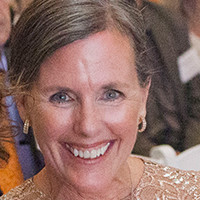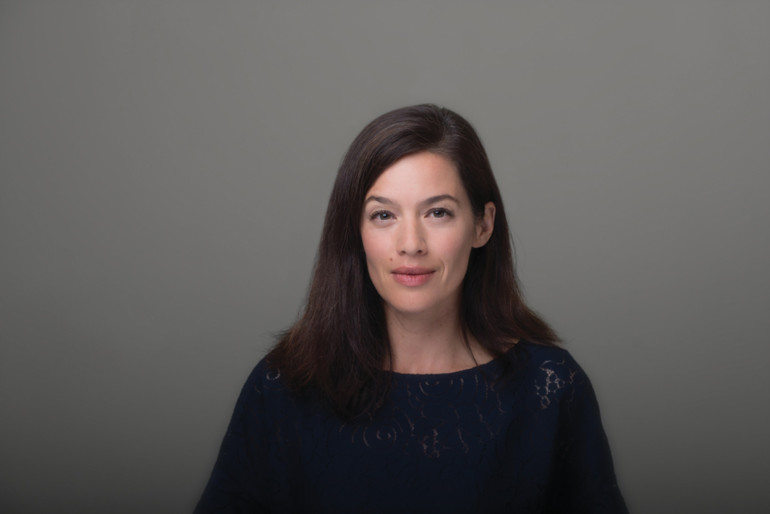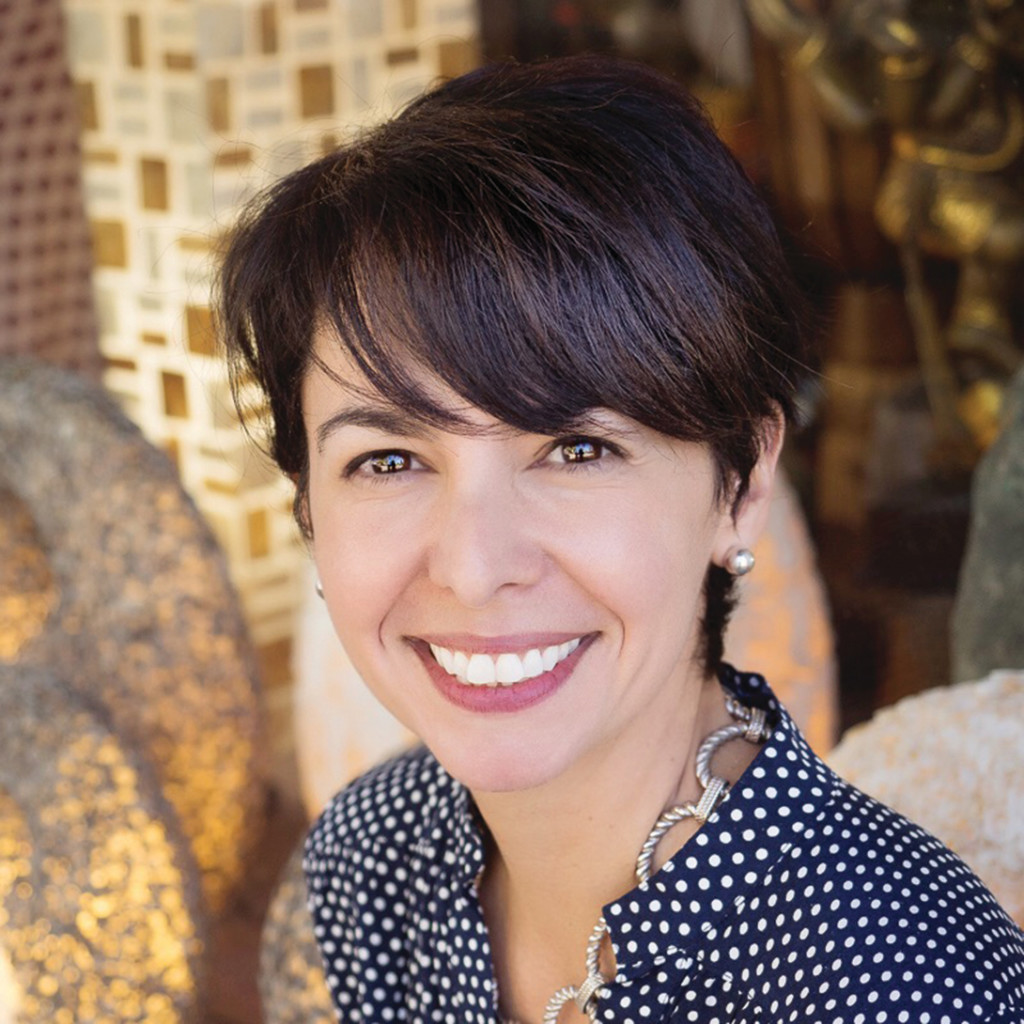Cynthia Nimmo, CEO of Women’s Funding Network
Nimmo is a strategic innovator overseeing and growing the largest philanthropic network in the world devoted to women and girls. She has consulted for foundations, nonprofit organizations, and Fortune 500 companies wishing to advance social causes. Cynthia began her career as a Legislative Aide in the US Senate to Senator Dianne Feinstein. In 2018, she was honored with the Powerful Woman of the Bay Award.
1. How do you describe yourself and the work you do?
I’m curious and analytical and I’ve always sought to know why things are the way they are. Being raised in a bi-national family provided me with a global perspective of culture and privilege that serves as my bedrock. As the CEO of the largest network for funders of women’s and girls’ equity, globally, I have the deep joy of using my natural passions to help create a world where half the world’s population has the representation that, in many cases, has been denied. Our network serves as a platform to connect the experiences of women and girls around the world, the knowledge and finances of grant makers and donors, and the opportunities for collaboration that are fundamental for making change.
2. What do you most enjoy about your job?
Every day I meet smart women who lead unabashedly with both heart and mind. They are innovative out of necessity – we have to be when we are changing systems that were not created for us. This leadership inspires me every time, whether I’m meeting an elected official making the case for equal pay; a survivor of trafficking who is employed in the tech industry after graduating from a training program; or a formerly incarcerated woman advocating for children and their mothers to be supported through reunification.
My favorite thing of all we do is to curate yearly gatherings for these change-makers from around the world. It’s where it all comes together. At our summits and conferences, there is open sharing of effective programs, invitations to collaborate, and such excitement about working together. We are a forum for those who not only care about gender equity but are funding it. I’m especially excited about our upcoming conference in September, Leadership for a Changing World, where we will hear from women leading the charge for solutions to climate change, closing the women’s wealth gap, ending violence against women and girls, and many other issues.
3. What challenges have you faced, and will you face, growing an impactful network of philanthropic support for women and girls? Please include specific examples of ways you and your organization have overcome those challenges.
Women’s Funding Network was founded thirty years ago by women who realized they were being left out of the philanthropy equation. Who’s assessing systems, looking at data to suggest what needs to be changed for healthier families and more inclusive economies, and then funding that change? So we created our own foundations to work in parallel with more traditional models.
Still, we are only one drop in a vast ocean and have struggled consistently against the tide of low resources going toward improving the lives of women and girls. People say it’s important, we can all read the data that shows the lack of equity, yet only approximately 4 to 6% of annual philanthropic giving is earmarked to change this. Clearly, this takes more than philanthropy. One way we hope to shift this—and a topic of our upcoming conference—is encouraging women to invest in women. This expands the possibilities by focusing on the increasing financial resources of women. For example, while women own four out of every ten businesses, only 2% of venture capital in the US goes to women-owned businesses. The biases are deep and so we want to encourage women to support female leadership and innovation in ways they may not have previously considered, like leveraging foundation gifts or their IRA’s.
Personal power comes from understanding the systems we are born into and evolving them as needed. We believe deeply in the wealth that comes from a diversity of voices and opinions. This too has been an ongoing challenge and I’m thrilled that today 60% of our members are either providing grants to support advocacy for policy change or advocating themselves.
4. What future opportunities most excite you?
For the movement as a whole, I’m thrilled to see so many women holding public office, from all walks of life. I believe we’ve reached the tipping point where seeing a woman CEO or prime minister or chief economist is normal, as women are being valued for their ideas and the know-how to implement them. Representation is no longer for people of a certain socio-economic class or ethnicity. Our members have established advisory councils for young women of color in eight states in the U.S. to work directly with mayors and governors. How can people who’ve been elected to make decisions be effective without direct lines to those who are experiencing challenges in their communities? It’s a smart way to lead.
5. What advice do you have for others who want to be change agents too?
Every one of us has a voice, a vote, and time. Use them. Look at how your finances are also “voting”. If you hold stock, how do the companies you invest in support their female workforce? What of the companies whose products you purchase? How do their ads portray women? Are you contributing to political campaigns or only talking about the candidates? Fund them. When it comes to nonprofit work, realize that every one of us can be a philanthropist. This is not something for only the wealthy and it’s important for each of us to realize the power we have. Make a contribution – no matter how small to an organization that is making change. As nonprofits, we depend on donations to keep this work going. I’d like to see equal pay in every state in the U.S., more girls in STEM, the end of forced child marriage, an end to sex trafficking, and all of this takes funding. My life’s work has been to establish gender equity, which is really about human dignity. Expanding systems to be more just and inclusive can take a long time. Be committed. Positive change is happening every day.
Danielle O’Leary, Economic Development Director, City of San Rafael
As the Economic Development Director for the City of San Rafael, Danielle O’Leary has been a pioneer in leading efforts to navigate the gray areas and opportunities of marijuana legalization, creating a model for others in the process too. Prior to that, O’Leary held an economic management position with the City of Santa Rosa for eight years. She has a bachelor’s degree in entrepreneurship and nearly 20 years of municipal management experience.
1. How do you describe yourself and the work you do?
I am an inquisitive person. I enjoy connecting with people and learning from their life experiences. I have the ability to conceptualize, be creative, take risks and present ideas clearly. I enjoying creating programs that tap into the community’s vision for their city. My economic development strategy is a continuous, adaptive and inclusive approach to growth and prosperity, which means stay attuned to what is happening in the community and spotting opportunities and trends when they arise. Whether it is meeting with commercial real estate brokers to understand our commercial vitals in our industrial, office and commercial centers, or work with a group of small businesses owners, the Downtown Business Improvement District and the San Rafael Chamber of Commerce to improve downtown aesthetics and create new marketing and Go Local branding campaigns, the variety of things to work on, and participate in, makes this job very dynamic.
2. What do you most enjoy about your job?
Days are never dull. Always something new to learn. I love being a part of the community. There are a lot of caring, smart and creative people in San Rafael. I focus on these assets/capacities and how they interact with each other and when opportunity arises, how can we activate it. I have been working in economic development for over 15 years, the discipline itself is evolving from the traditional business attraction, retention and promotion focus, to a broader approach that includes creative place-making, talent attraction programs, branding and community storytelling to improve a city’s competitiveness and financial sustainability. I feel honored to be doing this work at this time in San Rafael. Lots of positive momentum and energy right now, especially in our Downtown. Downtown is our workforce and professional hub, we are experiencing a renaissance in craft brew pubs, new restaurants, and embracing our downtown walkable urban experience. San Rafael was also one of 14 cities in the State of California to be chosen as a Cultural Arts District. I see a bright future for San Rafael and it excites me!
3. What challenges do you face? Please include specific examples of ways you already have overcome some of those challenges too.
My struggle is learning the art of prioritizing. I have a lot of goals and aspirations, and not enough time in the day to get to all of them. I can be a hard on myself about not accomplishing everything I want, when I want to. I think my biggest challenge the past few years was developing the cannabis program, while balancing all the other time-sensitive economic development activities. I had to create time and space to allow myself to intently focus on learning and creating a custom program for San Rafael, that was reflective of our local and regional strengths and ground game. I believe if we create a solid framework, it will get less time intensive over time.
The new cannabis regulatory landscape is complex and ever evolving. If you wait for the perfect time to act, you will be left disappointed.
4. Where do you hope to be one year from now?
- I want to continue building out San Rafael’s artisan cannabis program. Making sure licensees are up and running, building out the compliance program and looking at ways to adjust and refine the program if changes are needed.
- I want to focus on getting more housing units Downtown
- I want to build out an Economic Development strategic plan for San Rafael
- I want to launch a lifestyle brand/website for San Rafael that highlights the people and place. Maybe some cool community “merch”
- I want to focus on activating our key commercial assets including Northgate Mall and Marin Square
One to five years from now….
- I want to promote and grow our arts and entertainment creative economy.
- Leverage the SMART and Golden Gate transit investments Downtown to attract and retain employers.
- Keep building place-making programs that reinforce we are diverse intersection of people and place.
- Focus on financial sustainability, so the community continues to build and grow its quality-of-life for everyone.
5. What advice do you have for others who want to be change agents too?
- Be open to data at the start: Even when I think I know what I am doing, chances are I don’t know what I could come doing.
- Prioritize relationships, connecting and learning: Be a learning person yourself. Change agents need to be in love with learning.
- Embrace the Suck: even the toughest experiences will provide you with insight and growth if you don’t spend your time fighting it. This requires curiosity over judgement.
- Know the business before you try and change anything: Give yourself time to learn and observe before you start creating change strategies. And move forward with humility.
 Susan B. Noyes is the Founder & Chief Visionary Officer of Make It Better Media Group, as well as the Founder of Make It Better Foundation’s Philanthropy Awards. A mother of six, former Sidley Austin labor lawyer and U.S. Congressional Aide, passionate philanthropist, and intuitive connector, she has served on boards for the Poetry Foundation, Harvard University Graduate School of Education Visiting Committee, American Red Cross, Lurie Children’s Hospital, Annenberg Challenge, Chicago Public Education Fund, Lyric Opera of Chicago, Chicago Symphony Orchestra, New Trier High School District 203, and her beloved Kenilworth Union Church. But most of all, she enjoys writing and serving others by creating virtuous circles that amplify social impact.
Susan B. Noyes is the Founder & Chief Visionary Officer of Make It Better Media Group, as well as the Founder of Make It Better Foundation’s Philanthropy Awards. A mother of six, former Sidley Austin labor lawyer and U.S. Congressional Aide, passionate philanthropist, and intuitive connector, she has served on boards for the Poetry Foundation, Harvard University Graduate School of Education Visiting Committee, American Red Cross, Lurie Children’s Hospital, Annenberg Challenge, Chicago Public Education Fund, Lyric Opera of Chicago, Chicago Symphony Orchestra, New Trier High School District 203, and her beloved Kenilworth Union Church. But most of all, she enjoys writing and serving others by creating virtuous circles that amplify social impact.



